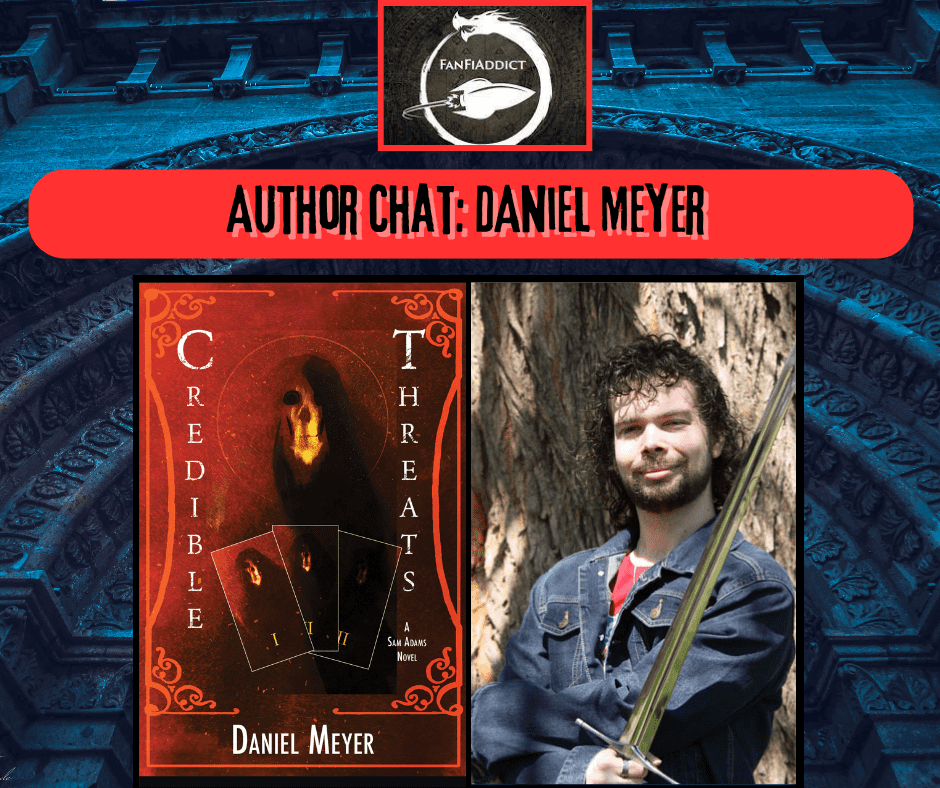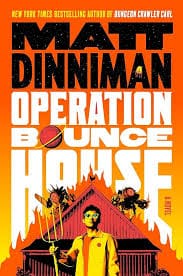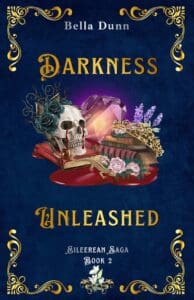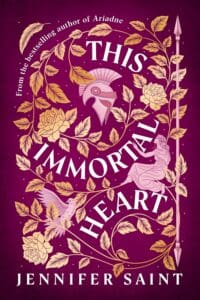Daniel Meyer tried his hand at a few careers, but fearing they were too realistic and achievable, he became a fantasy writer instead. Now he spends his days writing stories about magic and explosions. He is a lover of Eighties rock, an occasional kilt-wearer, and a supporter of raccoons. He lives in Missouri, where, as ever, he’s working on his next novel.

Hello Daniel, and welcome to FanFiAddict! To begin, what advice would you give to a writer working on their first book?
Namely, to just keep after it. Don’t stop when you get stuck, or if you’re not satisfied with what you wrote, or you find it taking longer than you imagined. Don’t get discouraged, and don’t be afraid to get into the “deep waters,” so to speak. You need to play around with your schedule, (which may take a while to get right) until you can carve out a consistent routine to write. The thing about writing is, the only way to get good at it is to do it, and the more you do it the better you’ll get. (And, I think, the more you’ll want to write.) It’s really no different from learning some other skill, or even working out.
Name an underappreciated novel that you love.
The Bleeding Land, by Giles Kristian. It revolves around two brothers caught on opposite sides of the English Civil War, a fascinating time period, but one that seems somewhat overlooked in fiction. It got a sequel, entitled Brothers’ Fury, but the publishers put the series on indefinite hiatus due to low sales, and of course, it ended on a cliffhanger. It’s easily my favorite thing that Kristian has written, and I’m holding on to the vain sliver of hope that somehow readers will rediscover it and give it a second life.
Have you ever considered writing under a pseudonym, and why or why not?
Well, when I first started out, I did think it would be fun but rejected the idea almost immediately, because it would have been too much trouble to keep up the pretense. You would have had to use your penname on Twitter, as opposed to your real name for Amazon’s payment information, and so on, and it would have been needlessly complicated, trying to keep it all straight. That said, if I were ever to dramatically switch genres—sometimes I have this wild urge to write a romance novel or something, just to see if I can get away with it, although since I have neither the time nor the story to do that, it won’t be happening anytime soon—I would definitely use one. Now and then, I still try and brainstorm what my penname would be, but of course, I’m not gonna tell you…
What do the words “writer’s block” mean to you?
Unfortunately, right now it means “current events.” For months now, I’ve been suffering from a nasty bout of it, and I’m only now starting to get past it. I spent several months making slow but steady progress on the next Sam Adams novel and nailed down the majority of the book, before crashing out last summer, my pace slowing to a crawl. To be honest, I think I was just getting burnt out on writing in general. It doesn’t help that the only thing I can think to do to get past it is to just go over and over it until something clicks, which can be deeply exasperating. Some writers claim that writer’s block doesn’t exist, but I’ve never bought that. When you’re staring at the page and there’s nothing in your brain for you to type, I don’t see how you can claim it isn’t real. One solution people suggest is to just start writing something, anything, but for me at least, that doesn’t always work.
I’ve finally started making some progress again in fits and starts. There’s still a lot left to write, but I think/hope I’ve at least got a better idea of which blanks need to be filled in.
How do you develop your plot and characters?
My plots tend to involve lots of trial and error and end up having a Frankenstein’s monster feel as a result, though hopefully that goes unnoticed by my readers, who won’t know how I pieced it all together. I’ll have some key scenes and the basic plot ready when I go into it, which is easy enough to bang out, but then I have to figure out how to make everything hang together, which frustratingly tends to involve many drafts and revisions. When I started the series, I’d come up with several very basic plots/villains/concepts, whittled down from a much longer list of ideas, that I wanted to incorporate in different books, and then had to go about turning them into something readable.
As to my characters, it depends. Sometimes they come from a random burst of inspiration, like Sam himself, who came about when I found myself imagining a story about a wizard in high school. Others come about due to the needs of the plot, like Rodriguez, who originated as a result of Sam needing a Jim Gordon-type figure on the police force. And once in a while, they do exactly what writers claim they do and prove to have a mind of their own, like Eressen, who was originally going to be a villain before turning out to be a character with much more ambiguous motives, or Alexandra, who was just going to appear in the opening scene to help us introduce Sam and his abilities, but quickly gained far more prominence, ultimately becoming one of the most important characters.
How many books have you written and which is your favorite?
Not counting my four unfinished trunk novels, I’ve written two: Credible Threats and Rising Shadows, books one and two of the Sam Adams series. I think I would have to pick Credible Threats as my favorite. It perfectly encapsulates what the Sam Adams books are all about; plus, it was the first novel I ever tried to write and the first one I published, so it has a lot of sentimental value.
What part of the book was the most fun to write?
I’m going to say the action sequence midway through the book, when Sam is trying to perform an exorcism in the middle of a car chase. That’s a scene I’d been looking forward to writing since the beginning, the one that helped me realize that I really was onto something good, and the one that perfectly captures the vibe of the series.
If you’re planning a sequel, can you share a tiny bit about your plans for it?
Certainly; I’m currently writing Sam Adams book three, Mysterious Ways. Sam’s been enjoying a period of peace and quiet when Elise, vampire assassin and ostensible ally, reappears in Williamsport with a very dangerous MacGuffin, which of course, some very dangerous people are after, and Sam finds himself caught in a war between vampires and a magic-hating death cult. Everyone has their own agenda and everyone is working at cross purposes. Sam and Elise managed to work together to save the day in book one, but now he has to figure out if that means he can actually trust her; we’ll find out who she’s working for and the designs they have on Sam, which were hinted at back in Credible Threats. This book is a little different than the previous two; whereas they were “comedic teenage urban fantasy noir” this is more “comedic teenage urban fantasy spy thriller.” There are a few nods to the spy genre in the book, and it was strongly influenced by my love of the Bond films, although poor old Sam isn’t quite as adept at handling these kinds of situations as 007. It’s got some scenes that I’ve been looking forward to writing since before I even started writing book one, as well as some fun stuff I’ve discovered along the way. I also think of it as a more “professional” book as opposed to “personal” book: this book isn’t about Sam unraveling some dark secret that hits close to home; rather, it’s about him being recruited for a mission due to his role as a wizard. So, I think it’ll keep things fresh, and I hope my readers enjoy it.
(I guess that was more than a tiny bit.)
What was your hardest scene to write, and why?
This is hard to narrow down, because writing the entire book can be pretty hard. The one that jumps out at me is a scene in book two, Rising Shadows. In it, Sam goes to see the mother of Abby, the girl he loved, who died before the series begins, and finally lets out all the grief he’s been holding in. I thought the book needed that moment of catharsis before the big showdown in the climax. The trouble was, I’ve always been rather uncomfortable writing those big emotional scenes; part of the reason Sam is so intent on bottling up what he’s feeling is because it was just easier for me to write, which inadvertently ended up providing some good character development for him.
When I got to this scene, I couldn’t avoid the emotional stuff any longer, so I sort of had to grit my teeth and fight my way through it. And I think I pulled it off.
What is the most valuable piece of advice you’ve been given about writing?
Other than what I mentioned earlier about persistence, I would have to say some posts written by Jim Butcher long ago; I’m not sure if they’re still on the internet or not. He talked about lessons he’d learned from his college writing teacher Deborah Chester. There were various things, but the main one I remember, and the one that helped the most with those early drafts of Credible Threats, was how to escape the “great swampy middle” of writing the book. He discussed how writers often have great ideas, but struggle to get the plot from A to B. The solution, he said, was to essentially write a climax in the middle of the book, tying up the plot threads leading to it, while starting new ones to lead us into the actual climax. This summed up the problems I’d been having with Credible Threats, and gave me an immensely helpful way of solving them.
The Sam Adams series is available on Amazon here.




Leave a Reply